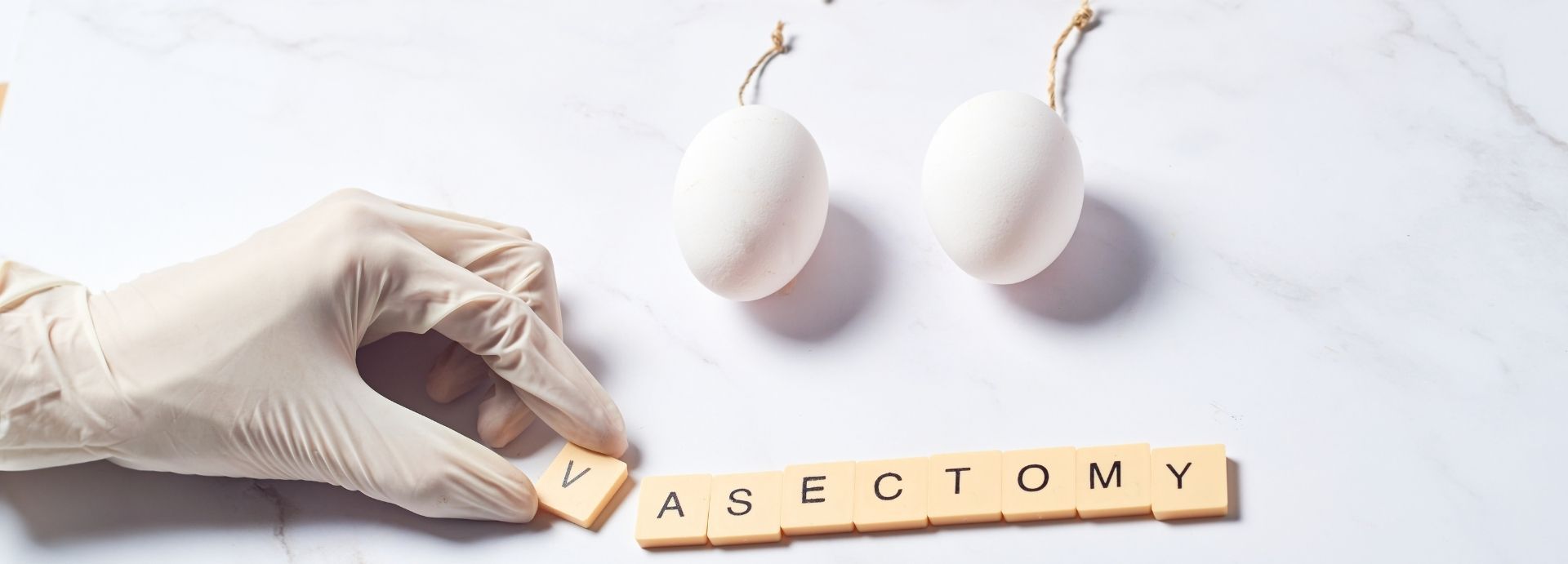Vasectomy

What is a Vasectomy?
A vasectomy is one of the most effective and safest methods of permanent birth control. It is usually performed on an outpatient basis under local anesthesia or sedation. The procedure typically takes about 20-30 minutes.
In the latest vasectomy technique, the so-called “no-scalpel” method, the scrotal skin and the coverings of the spermatic cord are only punctured and spread to gain access to the vas deferens without using a surgical knife. The vas deferens are then cut and both ends are conventionally sealed. This prevents sperm from entering the seminal fluid, which then consists only of secretions from the seminal vesicles and prostate.
In the “mini needle” anesthesia technique we use, a small amount of anesthetic is injected directly into the skin and into both underlying vas deferens. This targeted administration optimizes the anesthesia and minimizes tissue damage.
This procedure is associated with relatively low operation-related complications such as bruising. Wound infections are also comparatively rare.
How is a Vasectomy Performed?
Once a man has decided to undergo this surgical procedure, the vas deferens are cut in two places and the section in between is removed. The exposed ends are closed with both a stitch and by using electricity (electrocoagulation). This prevents sperm from entering the seminal fluid.
The treating physician gains access to the two vas deferens through small incisions on the right and left sides of the scrotum. The procedure itself is performed by a urologist and is simpler to perform than female sterilization. The operation is usually done on an outpatient basis and under local anesthesia. It normally takes about 20 minutes. In rare cases, complications such as infections, bruising, injury to the testicles, or wound healing problems can occur.
Preparation and Initial Consultation for Vasectomy
If you have completed your family planning and wish to undergo a vasectomy, it is best to schedule an appointment with our partner UROMED Competence Centre in Vienna or any of our clinics in Bursa or in Istanbul for Urology for an informational consultation.
During this appointment, you can discuss all your questions, concerns, and fears in detail after a brief examination as part of the counselling session. Following this, a date for the vasectomy will be arranged with you, and you will be informed about all the necessary preparations for the surgical procedure.
Is a Vasectomy Reversible?
A vasectomy can be reversed through another surgical procedure, which attempts to undo the sterilization by reconnecting the previously severed ends of the vas deferens. However, there is no guarantee of success. Therefore, anyone considering a vasectomy should be fully aware beforehand of whether there might be a desire for more children in the future.
How Will a Vasectomy Affect My Life?
Immediately after the vasectomy, you should avoid heavy physical work; otherwise, physical rest is not necessary. Sexual intercourse is possible after just a few days, but contraception should still be used since fertile sperm can still be expelled from the vas deferens during ejaculation for several weeks. Typically, there should be no more sperm in the seminal fluid after two to three months.
The more frequently a man ejaculates during this period, the faster the remaining sperm will be expelled from the vas deferens.
Between 12 and 14 weeks after the vasectomy, our clinics conducts two semen analyses (spermiogram tests) at our centre until no sperm are found in the seminal fluid. Once you receive confirmation of the successful vasectomy by mail, you can immediately engage in unprotected sexual intercourse
Frequently Asked Questions About Vasectomy
Many men hesitate to undergo a vasectomy because they fear it might affect their sex life. However, this concern is completely unfounded:
A vasectomy does not affect hormone production in the testes or potency. Sexual desire and the ability to achieve an orgasm also remain unchanged after a vasectomy. Additionally, the amount of ejaculate does not change after sterilization since the seminal fluid is primarily produced in the prostate and other glands, with only about five percent consisting of sperm cells.
Sperm will continue to be produced in the testes after sterilization, but they will be reabsorbed by the body shortly after entering the now-closed vas deferens.
Between 12 and 14 weeks after the procedure, two sperm analyses will be conducted to confirm that no sperm are present in the semen. Once no sperm are found, you will receive confirmation of the successful vasectomy by mail. After receiving this confirmation, you can immediately engage in unprotected sexual intercourse.
Generally, the procedure is not painful. To make the experience as comfortable as possible, patients are given a single dose of a painkiller to take.
Feel free to contact us if you have any inquiries or any additional questions.
*Pharmalps is not a clinic*
**Pharmalps offers medical tourism consultancy**
***Pharmalps does not make any treatments***
****Pharmalps represents clinics around the world****

